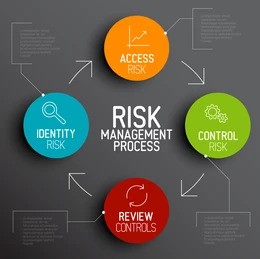The COVID-19
pandemic comes out of nowhere and causes sudden risks. Long-term risks include
business disruption from climate change.
Before
significant damage is done to the business or its reputation, businesses
consider the risks that they can't manage.
Creating a
security risk assessment from environmental measures alone would prove
ineffective during a COVID-19-like crisis. Instead, a new approach is needed.
In order for
public health and social support systems to endure future crises, the overall
resilience of all business participants is crucial.
Considering ESG
during crisis management planning
Crisis
preparedness requires maintaining an "ESG" mindset to avoid
contradicting the organization's goals.
Many of
their clients consider issues related to the environment, social justice and
governance called “ESG” when considering risk management.
Crisis management professionals need to perform well in the area of environmental,
social, and governance risks.
This is due
to the close relationship between these risks and other components of their
job.
These
components include risk assessment, mitigation, and crisis communication.
Including
“ESG” principles in business functions helps prevent crises by incorporating
these ideas into the process.
Companies
know that poorly resolved “ESG” issues can become crisis situations.
Defusing
community distress, worker issues or scandals, public complaints about local
pollution and environmental activism caused by said pollution can all help
minimize the chances of a crisis.
This is
because any of these issues can be triggered by the same reason: people are
unhappy about something in their community.
Environmental,
social, and governance ESG are important factors to consider when responding
to a crisis
Considering
the environment includes considering the energy needed to operate, waste
produced, animal handling and considerations for conservation of natural
resources.
ESG assesses
environmental risks organizations or third parties may face. Investors feel
this environmental crisis will motivate them to implement the ESG agenda.
Its broader
effects on society and governance will be irreversible. On top of that, crises
like this one prove the need for companies to focus on long-term
sustainability.
ESG refers
to the three main measures of a company or country's performance —
environmental, social and governance — which are related to sustainability.
Understanding
a company’s performance and strategy in each area allows people to choose how
they interact with the organization, such as governments, consumers, investors
and employees.
*If you find this article useful, donations are always appreciated.
Paypal address:
elharrazrachid3@gmail.com

